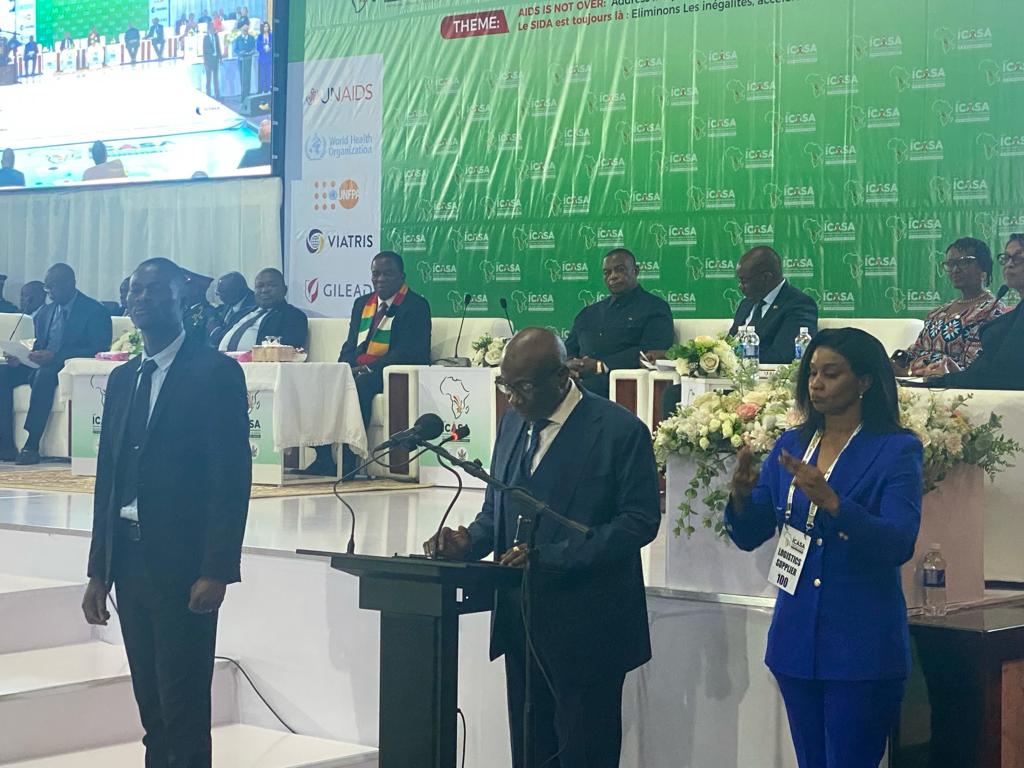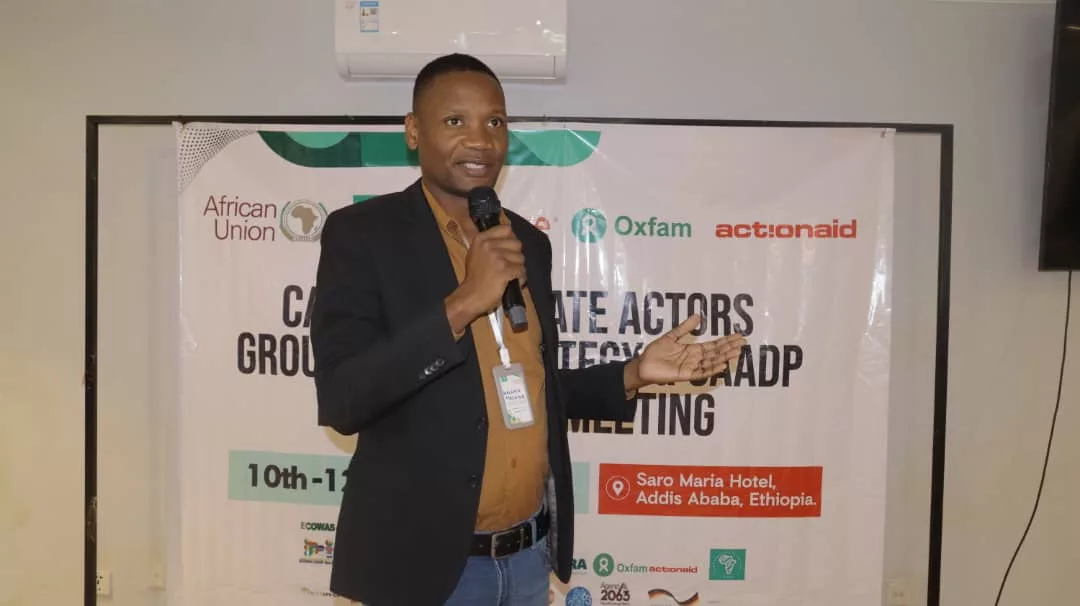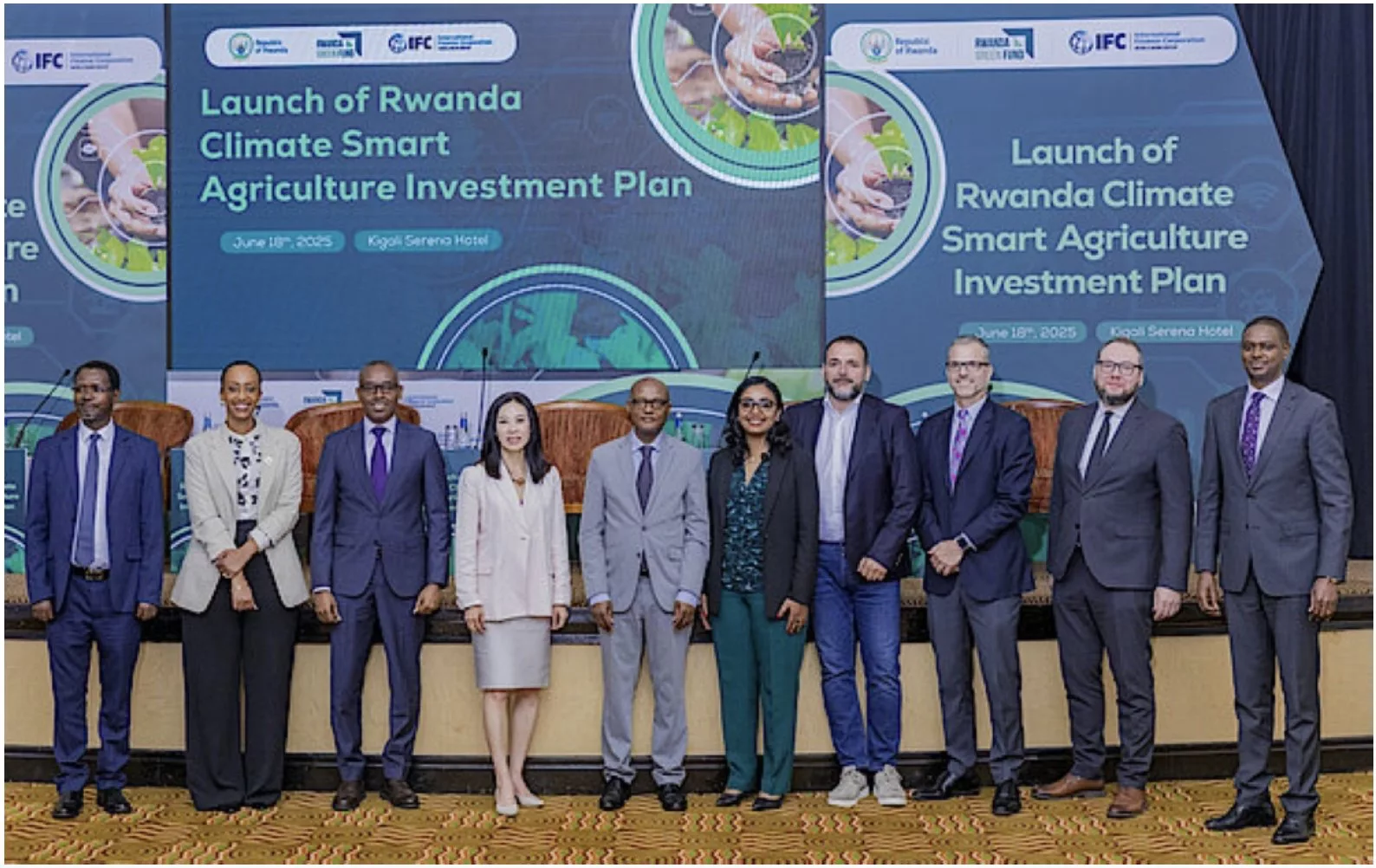|
Getting your Trinity Audio player ready...
|
His Excellency, Mr. Edward Kallon, the United Nations (UN) Resident and Humanitarian Coordinator for Zimbabwe has applauded the whole society and whole-government approach to ending HIV and STIs by the country in its quest to become an upper middle-income society by 2030.
He made the remarks during the ICASA Opening where the conference is being held under the theme “AIDS is not over – Address Inequalities, Accelerate Inclusion and Innovation” on 4 December 2023 at the Harare International Conference Centre in Zimbabwe.
The official opening was graced by several dignitaries. The Guest of Honour was His Excellency E D Mnangagwa, President of the Republic of Zimbabwe. Also in attendance were the Honourable Retired General Dr C. G. D. N Chiwenga, Vice President of the Republic of Zimbabwe who was joined by the Honourable Retired Colonel Hon K.C.D Mohadi, Vice President of the Republic of Zimbabwe.
In attendance were Honourable Charles Tawenga, Minister of State for Harare Metropolitan Province as well as Dr David Parirenyatwa, the President of Society for AIDS in Africa and ICASA 2023. Honourable Dr. Douglas Mombeshora, the Minister of Health and Child Care and Vice President of ICASA 2023 also graced the occasion.
Distinguished UN principals at the conference include the UNAIDS Executive Director, Winnie Byanyima; UNFPA Regional Director, Lidia Zigomo; and WHO Regional Director, Dr Matshidiso Moeti. Besides the UN principals at the ICASA 2023, there are 22 UN entities, behind the Zimbabwean government supporting not only the ICASA organizers in various capacities but also the Government of Zimbabwe in ending AIDS, supporting the country to achieve its vision to become an upper middle-income society by 2030 and the agenda 2030 for Sustainable Development.
HE Kallon acknowledged First Lady, Her Excellency Dr Auxillia Mnanagagwa for her dedication to community engagement, investment, and extensive work in the response to HIV, STIs and other noble causes including fighting drugs and substance abuse among youth as the main driver for HIV infection and other social ills.
“Your Excellency, it is heartening to see the strong engagement of the mother of the nation, true translation of your whole society and whole-government approach to ending HIV and STIs and becoming an upper middle-income society by 2030. Her efforts go beyond HIV and encompass broader mobilization endeavours for Zimbabwe’s Vision 2030 and the achievement of the Sustainable Development Goals by 2030.
“Equally, here today, I am honoured to see the UN delegation has been fronted by three powerful women in leadership led by the UNAIDS Executive Director responsible for coordinating 11 UN joint Programme Agencies in the fight against HIV and AIDS. When women are empowered and take their rightful space and place in society true transformation takes place, inequalities are addressed, and inclusions and innovations are accelerated not only to tackle HIV and STI but achieve the SDGs,” HE Kallon said.
The UN Senior official added that Zimbabwe has witnessed firsthand the transformative potential of devolution and community approach to addressing inequality and accelerating inclusions and innovations in various aspects, such as the mobilization of resources under the AIDS Levy, the establishment of schools and teachers throughout the country, efforts in combating natural disasters like Cyclone Idai, and more recently, in tackling the challenges posed by COVID-19.
HE Kallon said the Government of Zimbabwe recognizes the importance of community leadership and has placed a strong emphasis on devolution. This highlights the value of empowering communities to fashion solutions to the challenges they face not only in ending AIDS and STIs but also in other areas.
He noted that while Zimbabwe has made commendable progress in the fight against the HIV epidemic and STIs, as in other countries, there are still numerous challenges to overcome in achieving the goal of ending AIDS and STIs.
“These challenges include disparities in access to HIV services based on age, gender, and geography. Adolescent girls and young women are disproportionately affected by new infections, while children and key populations have limited access to services. The national-scale implementation of programs targeting these groups is yet to be achieved.”
To effectively end the pandemic in line with the 2030 Agenda for Sustainable Development, HE Kallon urged four critical actions.
First, he said there is a need to scale up HIV prevention and treatment programs to cover all subpopulation groups, with a particular focus on adolescent girls and young women.
Second, community leadership and the engagement of men are crucial in addressing social norms related to gender equality and gender-based violence. Third, enacting and enforcing laws and policies for key population groups is essential, as well as sustaining initiatives like social contracting and strengthening evidence generation. Fourth, adequate funding and economic opportunities should be allocated to communities, as this will connect individuals to person-centred public health services, foster trust, and hold providers accountable. Additionally, ending stigma and discrimination is a crucial aspect of ensuring that no one is left behind.






